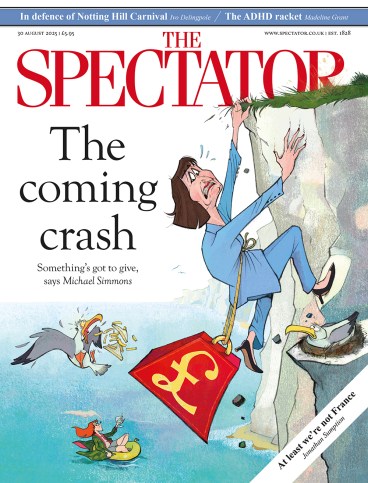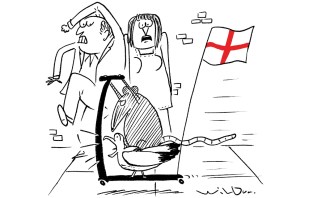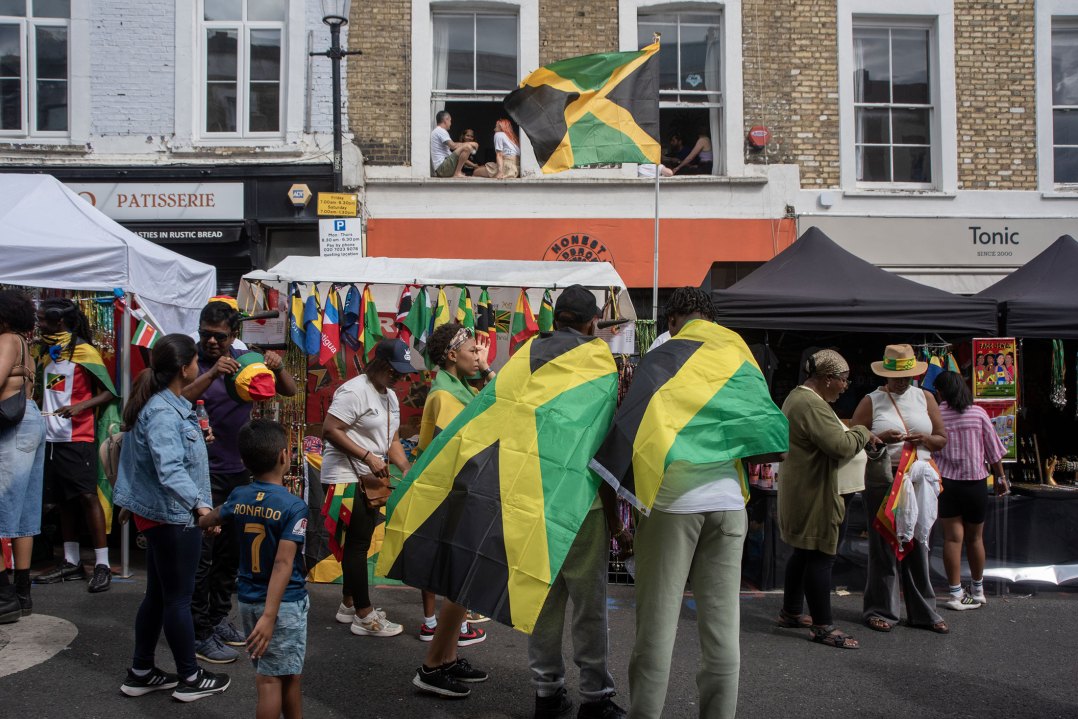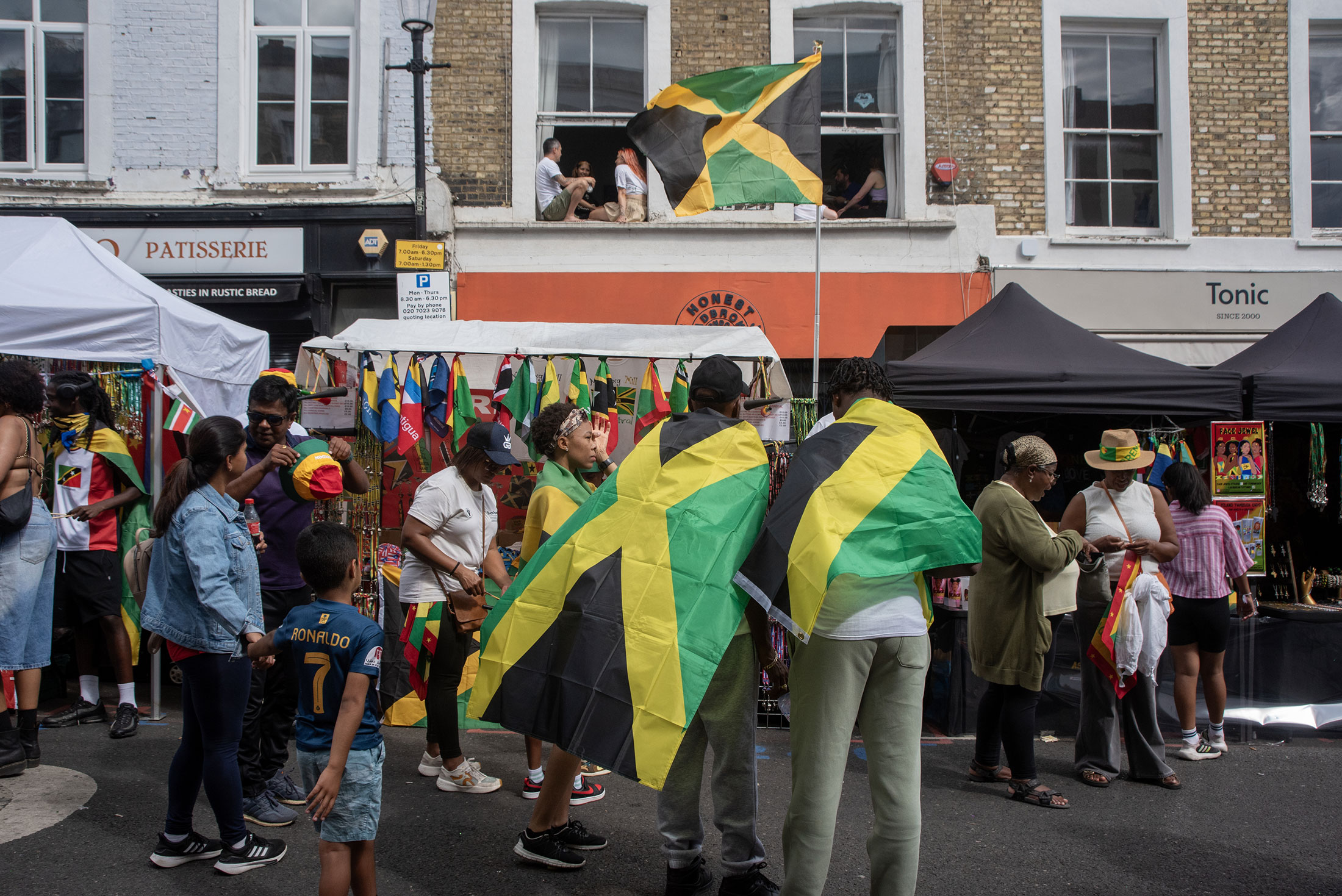
At the end of Sky News’s coverage of last year’s Notting Hill Carnival, its correspondent recited the usual list of arrests, stabbings and so on before concluding her piece to camera by saying: ‘But overall it’s been a really peaceful and enjoyable day.’ This year the honour of summing up the beauty of the event was left to Sky’s arts and entertainment correspondent, Katie Spencer. The reason it is important for two million people to gather in the tight streets of Notting Hill over the August bank holiday, she said, is because of ‘resistance to racism’. ‘This is a place where community comes together,’ she went on, ignoring all the shops in the area that had been boarded up. ‘You don’t walk around constantly looking over your shoulder.’
This year, over the two-day event, there were 423 arrests, 32 assaults on police, only a couple of stabbings (down on last year), fewer than 50 guns, machetes and knives seized, and a mere 18 sexual offences. Safe spaces, which were introduced last year, were back. As one female Metropolitan Police officer explained: ‘Women and girls who might feel sort of vulnerable in Carnival – unfortunately there are incidents of sexual assaults – can go and be supported in those areas.’ It is hard to think of another cultural event in this country where dedicated areas have to be set aside in advance for people who will be sexually assaulted. The BBC Proms, for instance, do not have an area set aside for people who have been raped by other Prommers.
‘Does [the Notting Hill Carnival] feel any unsafer than being at, say, Glastonbury?’ asked Spencer, before answering herself: ‘Not particularly.’ Which, if true, is another reason never to go to Glastonbury.
The gated institutional narrative around events such as the Notting Hill Carnival is that ethnic minorities need a ‘safe space’ in order to have a day or two off from the racist nightmare that is life in the UK. What is interesting about this year’s Carnival is that it comes at a time when a different grass-roots movement is springing up – and attracting a very different response. That is the decision by a large number of people, mainly in England, to start flying our national flags more prominently. One part of this movement is called Operation Raise the Colours, and of course the people involved have already come in for the usual smears and guilt-by-association.
The BBC this week ran a report on the phenomenon of people flying our nation’s flag. As you might expect, the subject was approached in the manner of a hanging judge who’s donned the black cap before asking for the first defence witness. Indeed, the BBC outsourced its expertise on this matter – as on all matters to do with anything patriotic – to the radical leftist campaigning group Hope Not Hate (a group which, as I have said here before, has its name precisely the wrong way around). As the BBC said: ‘According to the research group Hope Not Hate, Operation Raise the Colours was co-founded by Andrew Currien, otherwise known as Andy Saxon, who has allegedly had links with the English Defence League and Britain First.’
What are you actually allowed to do or say if you don’t like the direction this country is going in?
One might note that this is a textbook effort at smearing an entire people. First of all, the radical activists at Hope Not Hate are described merely as a ‘research group’. And then they say that someone involved in one of the organisations that has encouraged flag-raising is someone who has been ‘alleged’ to have had links with the defunct EDL. This is the journalistic version of the 1920s hit song ‘I’ve danced with a man, who’s danced with a girl, who’s danced with the Prince of Wales’.
Yet Operation Raise the Colours brings to mind the occasional times in recent decades when MPs from the Labour and Conservative parties have talked about the importance of having more pride in our culture and about how we should ‘reclaim’ our national flag. Here is a movement that is responding to some of the downsides of mass migration by showing pride in our flag. And the response from much of the media is to say: ‘The flag you’re flying is the flag that is flown by someone who we’re told might have links with groups we deem unsavoury.’
So we return to that age-defining question: what are you actually allowed to do or say if you don’t like the direction this country is going in? If you join a rally against the rape of young British girls, you will be marked as a racist. If you go to a demonstration against putting up illegal migrants in expensive hotels, you will be branded far right. If you put up a flag, you will be smeared by the most distant possible association with someone you’ve never met who might have put up the same flag for the ‘wrong’ reasons.

Perhaps it is just about possible that the public could be kept down forever, our national story trashed and our flags said to be toxic. The problem is trying to maintain that stance while at the same time encouraging everybody else to have a whale of a time with their own emblems and traditions, even traditions where laws are broken.
We are informed that some migrants may feel concern at going down a street festooned with our national flag. But it’s an odd thing to move to a country and then say that its emblems scare you. Still, I find the argument unconvincing. I felt concern recently going down a street in east London where every lamppost was bedecked with signs saying ‘Trust in Allah’. But I never heard of anyone caring about my feelings.
I suppose people can vote Reform. But the next election is four years away. And just guess what the media will do to voters who even think of putting their cross in that box.










Comments